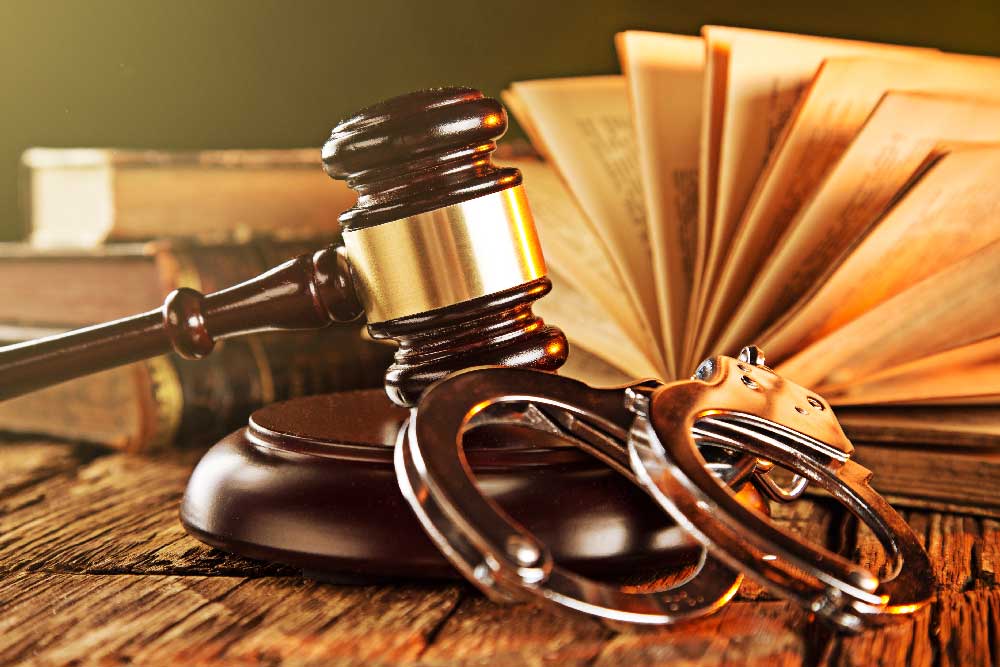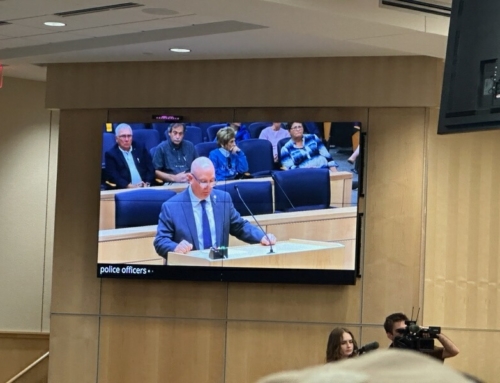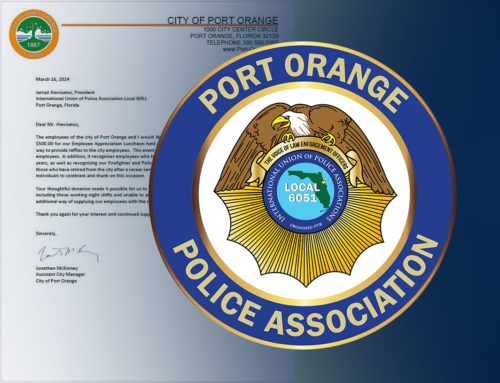Why Do You Need Legal Defense Fund Protection
Most officers will never need to discharge their firearms on duty. But for officers who find themselves in that scenario, it is undoubtedly stressful. The scenario immediately afterwards can seem chaotic. Backup is arriving, the public is starting to congregate at the scene, and your supervisor is asking numerous questions to determine if there is still a public safety threat. Fortunately, you were there to keep the neighborhood safe. But now who has your back?
Officer involved shootings lead to automatic criminal and administrative investigations. It’s crucial that you have someone you can speak with openly, confidentially – and immediately. However, that is not the only time you may need the help of legal counsel. Critical incidents can also lead to civil allegations and lawsuits.
Fortunately, with IUPA’s collaboration with the Peace Officer Research Association of California (PORAC) Legal Defense Fund (LDF), the process of getting you in touch with an experienced attorney any time you are the target of a criminal investigation or civil proceeding is smooth and instantaneous.
What is the Legal Defense Fund and What Does it Cover?
If you have full-service coverage with IUPA, your attorney will provide legal services to your local in the areas of general counseling, collective bargaining, and administrative and disciplinary hearings. Those services do not include representation to individual officers involved in critical incidents or other criminal investigations and civil proceedings. This is where LDF comes into play. Because each of these scenarios requires a different skill set, LDF has a broad range of attorneys on its panel.
For criminal matters, LDF provides individual officers with an experienced criminal defense attorney from the moment that it appears the officer has criminal exposure arising out of an act committed in the scope of employment. This can include any number of scenarios, including officer involved shootings, accidental discharge of your service weapon, or use of force that resulted in physical injury. LDF will cover not only the costs of the attorney, but also of any expert witness fees necessary for your defense.
For civil investigations and lawsuits, your employer agency will typically provide you with legal representation and pay damages resulting from that lawsuit if you were acting within the scope of your employment. This coverage may have exceptions or exclusions – most notably for punitive damages – so you may still be vulnerable. If you find yourself in this scenario, LDF will provide you with an experienced civil attorney if you are sued for an act within the scope of employment if your employer refuses to defend you. If your employer defends you but fails to fully indemnify you for any damages that could result in the lawsuit, LDF will provide you with legal counsel to monitor the case.
What Can You Expect from an LDF Attorney
Let’s take a deeper look at the most common scenario where LDF comes into play – officer involved shootings. From the moment you discharge your weapon, your attorney can help you through each of these steps. Each involved officer and each witness officer should have their own legal counsel to guide them through this process.
While you are still at the scene of the shooting, several key issues come into play. First and foremost, you may need medical attention – and your adrenaline levels may interfere with your ability to acknowledge that fact. It is crucial that you take care of yourself from this first moment through the entire criminal and administrative process. Do not hesitate to ask for and accept medical attention. There will probably be workers compensation documentation if you receive medical assistance, and your attorney can help you keep track of that documentation.
At the scene, a supervisor will ask you questions to identify if there are any remaining threats. It’s important that you understand what public safety statement questions are proper, and when the questioning spills over into a criminal interrogation. As you go through this process at the scene, you should already be on the phone with your attorney.
As soon as practicable, and while still on scene, you should assigned a companion officer to accompany you. Your companion officer’s role is to ensure that you are not isolated at any point throughout the initial stages of the criminal investigation. That officer will also play an important role for chain of custody purposes. However, it is vital to note that your conversations with your companion officer and with the union leadership are not confidential. Involved officers often want to discuss what just happened with someone – and for this reason, it’s vital that person be the attorney.
Once you have received medical attention, several more issues will come up. The detectives conducting the criminal investigation will undoubtedly collect your service firearm as evidence – and you may feel vulnerable if you are not provided a replacement right away. Additionally, you want to be sure that your name will not be released to the media, at the very least until a thorough threat assessment can be conducted to ensure that you will not be in danger once that information is made public.
The biggest issue that your attorney will help you decide is whether and when to provide a statement in the criminal investigation. Often, the detectives will ask you to make a statement immediately, and the pressure to comply can be intense. However, there is plenty of support for waiting for at least 48 to 72 hours[i] before providing an interview to allow for recovery time and to enhance your ability to recall the events. Unlike an administrative proceeding in which you must cooperate, you have the same rights as any other citizen in a criminal investigation – including invoking your Miranda rights to have an attorney and to remain silent. Additionally, officers have additional rights, often under state statute, to be questioned only at a reasonable time and in a reasonable place. Even if you feel pressure to make a statement right away, your attorney can and should invoke these rights for you. You may feel the need to jot down notes or somehow record your thoughts immediately after the incident. However, those notes would be subject to discovery. You can speak confidentially to your attorney, and your attorney can take notes that will be confidential and protected by the work product doctrine.
If you decide not to give a statement, know and understand Garrity. You may be compelled to provide a statement for the administrative investigation, and failure to comply may lead to termination. Often, the administrative investigation will not take place until the criminal investigation is over – but that may not always be the case. If you are being compelled to make a statement, your attorney should ensure that the requirements of Garrity are complied with so that the statement cannot be used against you in a criminal proceeding.
If you do make a statement, there are some factors to be aware of. If you have never been Mirandized, it can be very unsettling. Your department may have a policy about whether the officers will be Mirandized – but you should be prepared for it nonetheless. Also, you and your attorney should discuss whether you want the interview to be recorded. It may be helpful to have the interview recorded, because it may save you from having to go through additional interviews if other agencies are involved, and for the impending administrative investigation.
If you give an initial statement, the detectives may ask you to give further statements, or conduct a walk through or provide other follow up information and evidence. You should consult with your attorney on these requests. Often, you will have additional information to provide. For instance, if you were injured during the shooting, injuries and bruises may not fully manifest until days later. It is vital to memorialize these injuries – not only for purposes of the criminal investigation, but also in the event the individual claims you used excessive force and a further administrative proceeding or civil rights lawsuit ensues.
One issue that often arises is whether you can or should watch videos or review other evidence prior to giving a statement. Your department may have a specific policy allowing this – or prohibiting it. Even if you do not review that information prior to your statement, your attorney can and should conduct an investigation to allow the attorney to better advise you about whether and when to make a statement. You should not expect your memory to be perfect, and often you will recall something that will not jive perfectly with your statement or with other parts of the investigation.
Often, there is an ensuing criminal prosecution of the individual who caused you to discharge your firearm. You should feel comfortable asking if your attorney can attend the meetings with detectives and prosecutors as the case goes on. One particular issue that may arise is if you recall something different than your initial statement or other evidence. This may be discomforting to you, but rest assured it is very typical and understandable in an incident as stressful as a shooting. You still must abide by your Brady obligations to reveal exculpatory evidence, and your attorney can help you through this analysis.
Throughout the investigation, numerous colleagues, friends and family will contact you to be sure that you are alright. Once again, be reminded that your communications are not privileged – and all of your emails and texts may be subject to discovery in criminal and civil proceedings. If at any point you need a sounding board or someone to just vent to, your communications with your attorney will still be privileged. Additionally, you need to continue to care for yourself – including seeking assistance from a mental health professional early on in the process and following up afterwards. Your attorney should also remind you of this resource and encourage you to use it!
How Can You Be Best Prepared for a Critical Incident
Before a critical incident presents itself, each union and officer should educate and ready themselves. Each officer should have the names and contact information of the union leaders and the LDF. The union leaders should identify a main attorney to be their primary contact, and should contact the LDF and the attorney immediately upon hearing of a critical incident. The LDF will follow up immediately with that attorney to be sure that attorney or another panel attorney is on the way to assist the officer.
Each officer should periodically review any general orders, SOPs and directives that are relevant to critical incidents. Union leaders should ensure that the officers have access to the most recent versions of these documents, and your union attorney should periodically review them to see if there are any revisions the union may want to request from the agency. Officers should also be fully versed in their rights under Miranda and Garrity, and the union should have cards or other ways to help officers invoke those rights in an emergency.
The union should also know what the policy is for defending and indemnifying officers in your jurisdiction. Additionally, the union can arrange for an attorney to consult with the board and members about how they may obtain additional insurance coverage to protect themselves.
Last but not least, officers need to know to take care of themselves! On any given day, officers are prepared to jump in to protect the public. But often, officers forget to tend to their own needs. Often, those needs include the ability to have someone by your side to have your back. Over and over again, I see how comforted officers are to know that the LDF and the attorney is right there to help them immediately when they need it most.
Heidi Meinzer is a solo practitioner based in Alexandria, Virginia. She is proud to serve as counsel to the IUPA Local 5 (Alexandria Police Department) and IUPA Local 5004 (Metropolitan Washington Airports Authority). Heidi serves on the Legal Defense Fund Panel for the Peace Officers Research Association of California, and has represented law enforcement officers in a number of critical incidents in Northern Virginia.
SIDEBAR:
Do your department policies and procedures have the following components?
- Ensuring involved officers receive medical attention immediately
- Public safety statement
- Companion officer
- Replacement service firearm
- Providing time for involved officers to provide a statement
- Conducting a thorough threat assessment prior to releasing the officer’s name to the public
- Officer care through an EAP and/or peer support team and a mental health professional early on in the process and in follow up at intervals afterwards








Get Social